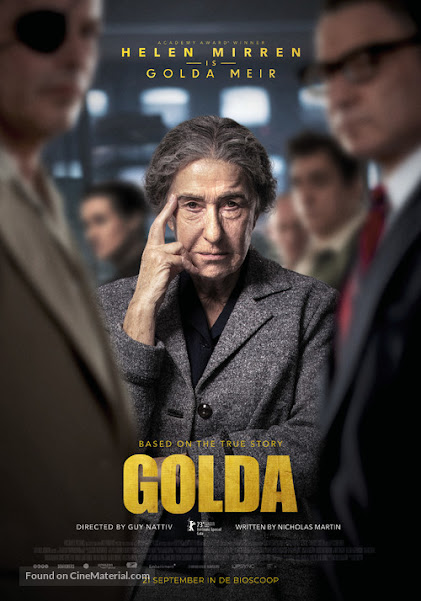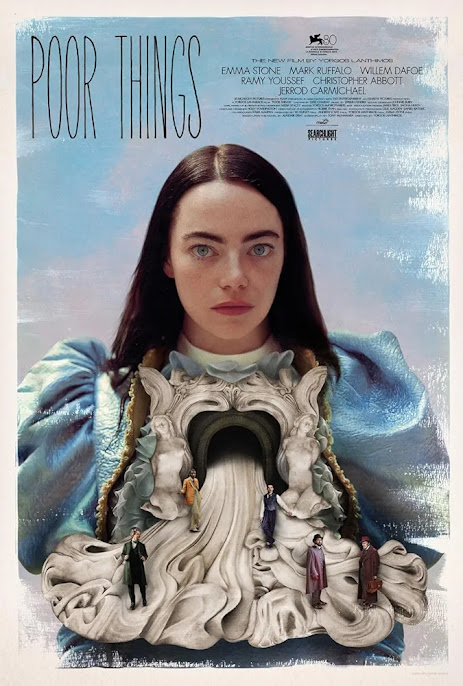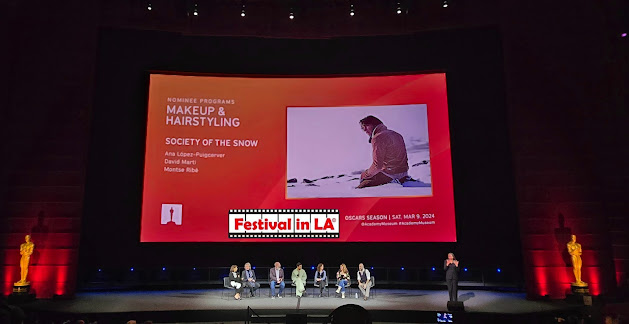The 2024 Dances With Films LA Filmmaker Award Winners:
GRAND JURY PRIZES
GRAND JURY - NARRATIVE FEATURES
BETWEEN THE LIGHTS
Director/Writer: Michael Groom
Producers: David Groom, Michael Groom
HONORABLE MENTIONS:
DREAMING OF YOU
Director/Writer: Jack McCafferty
Producers: Bridgett Greenberg, Jack McCafferty
 |
| Tallywalcker Q&A. Photo: José Alberto Hermosillo ©2024 FestivalinLA |
TALLYWACKER
Director/Writer: Brendan Boogie
Producers: Jeremy Dubs, Chris Goodwin, Brendan Boogie
GRAND JURY – DOCUMENTARY FEATURES
A LITTLE HOPE FOR CHICAGO
Director: Leon Lozano
Writers: Kevin Nichols, Leon Lozano
Producers: Garrett E.B. Thompson, Kevin Nichols, Leon Lozano
HONORABLE MENTION:
SPYRAL
Director/Writer: Bill Guttentag
Producer: Jennifer Hutchins
GRAND JURY PRIZE - NARRATIVE SHORTS
BLACK SILK
Director/Writer: Patrick Michael
Producers: Patrick Michael, Josh Akin, Tiffany Gist, Samuel Skeen
HONORABLE MENTIONS:
KOI
Director/Writer: Taige Shi
Producer: Tianyu Yang
THE RUNT
Director/Writer: Christy Stratton
Story by: Christy Stratton, Mark Norberg
Producers: Katrina Rotondo, Daniela Inés Calvo and Christy Stratton
INDUSTRY CHOICE AWARDS
INDUSTRY CHOICE AWARDS (UNDER 40’)
IS IT BECAUSE I’M A GIRL
Director: Peter Decherney
Producer: Peter Gitau
 |
| "Fight Like a Girl." Photo: José Alberto Hermosillo ©2024 FestivalinLA |
INDUSTRY CHOICE AWARDS (OVER 40’)
FIGHT LIKE A GIRL
Director/Writer: Matthew Leutwyler
Producers: Anton Laines, Innocent Munyeshuri, Yvette Gayle, Serge Ibaka
 |
| The Art of the Pitch - Photo: José Alberto Hermosillo ©2024 FestivalinLA |
FEVER PITCH SHORT SCRIPT CHALLENGE
WINNER: JUDAS KISS by Sean Cage
RUNNER UP (TIE)
IN THE POCKET by Antjuan Ward
MERRY CHRISTMAS, COLONEL SHOUP by Ed Lawrence Robinson
AUDIENCE AWARDS
 |
| Photo: José Alberto Hermosillo ©2024 FestivalinLA |
COMPETITION (NARRATIVE) FEATURE AUDIENCE AWARD
THE MAN WHO SAVED THE INTERNET WITH A SUNFLOWER
Directors: Ori Yardeni, Emil Ben Shimon
Writers: Oren Safdie, Izhar Har-Lev, Ori Yardeni
Producers: Kobi Hoffmann, Zehava Shekel
DOCUMENTARY FEATURE AUDIENCE AWARD
SAVING JONES
Director/Writer: Rebecca Corry
Producer: Stand Up For Pits Foundation with Angel Forever
FUSION FEATURE AUDIENCE AWARD
THE DISINVITED
Director: Devin Lawrence
Writers: Devin Lawrence, Matthew Mourgides
Producer: Matthew Mourgides
DOWNBEAT AUDIENCE AWARD
BED BY 9
Director: Christian Klein
Writer: Max Castillo
Producer: Olivia Isabel Comas
DANCES WITH KIDZ PRO AUDIENCE AWARD
SURVIVED BY
Director/Writer: KD. Chalk
Producers: Nicole Crespo, Pinar Binay
PILOTS AUDIENCE AWARD
EXPOSED
Directors: Reece Melber, Rachel Othon
Writer: Hannah Merritt
Producer: Sina Crenshaw
COMPETITION (NARRATIVE) SHORTS AUDIENCE AWARD
I APPROVE OF THIS MESSAGE
Director: Craig Newman
Writer: Michael Barringer
Producers: Craig Newman, Michael Barringer
DOCUMENTARY SHORTS AUDIENCE AWARD
EL REGRESO
Director: Samantha Ramirez-Hererra
Producer: Sam Bathrick
FUSION SHORTS AUDIENCE AWARD
PUPPY LOVE
Director: Daniel Rashid
Writers: Daniel Rashid, Elizabeth Valenti
Producers: Reilly Anspaugh, Daniel Rashid, Elizabeth Valenti
Dances With Films will return for its third New York City edition in December. For more information, please go to https://danceswithfilms.com/.
Under the Volcano: The Golden Era of a Recording Studio in the Caribbean
DANCER” THE UKRAINIAN BILLY ELLIOT OF ‘AKE ME TO CHURCH
Festival in LA ©2024





































